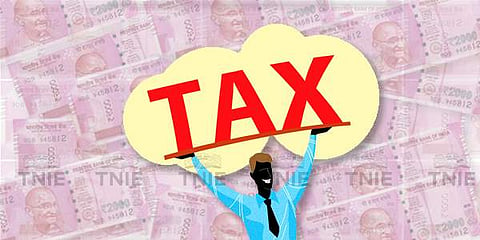Inadequate steps to mop up indirect tax
Finance Minister Nirmala Sitharaman, while presenting the Union Budget 2020-21, outlined three prominent themes for this year: Aspiritional India that seeks better standards of living with access to health, education and jobs for all sections of the society; Economic Development for All; and Caring Society. In line with these three themes, she has unveiled a series of measures for the short, medium and long term.
Obviously, adequate revenue realisations would be needed to implement those measures. As for the tax revenue, the government resources are limited, given the condition of the economy. In respect of indirect taxes, there is little scope to tinker with the GST rates through Budget; these are decided via GST Council. The minister has, however, briefly explained the procedural reforms in the ongoing GST implementation. Mention has been made of simplified return formats along with electronic invoicing, improved input tax credit flow to be implemented as a pilot run from April 1, 2020, Dynamic QR-code capturing GST parameters proposed for consumer invoices, Aadhar-based verification of taxpayers, etc.
Former chairman, CBDT
Cigarettes and other tobacco products are the only GST items on which the finance minister has proposed to raise excise duty, by way of National Calamity Contingent Duty; no change has however been proposed in the duty rates of bidis. This is a rare instance where a levy has been proposed by the Centre on the goods covered by GST, apparently unilaterally, without consulting the states.
On the customs duty mobilisation, the domestic industry has been given protection, or a level playing field, by raising duty in certain items. Duty has been raised on footwear to 35% from 25%, furniture to 25% from 20%, but that on newsprint and coated paper has been cut to 5% from 10%. Duty has also been revised on electric vehicles and parts of mobile phones. There has also been higher duty on items like auto-parts and chemicals being made indigenously. Also, a health cess of 5% has been imposed on import of certain medical devices.
On the legislative measures, Customs Act is being amended to enable proper check and avoid misuse of imports under FTAs. Rules of Origin Requirements are being reviewed for certain sensitive items to avoid misuse. Provisions relating to safeguard duties and stopping of dumping of goods are being strengthened.
All these steps are likely to mobilise indirect tax revenue to some extent. But, these steps do not seem adequate enough to help the government implement its highly ambitious projects outlined in the Budget proposal. Even the part disinvestment in Life Insurance Corporation would be too little.

